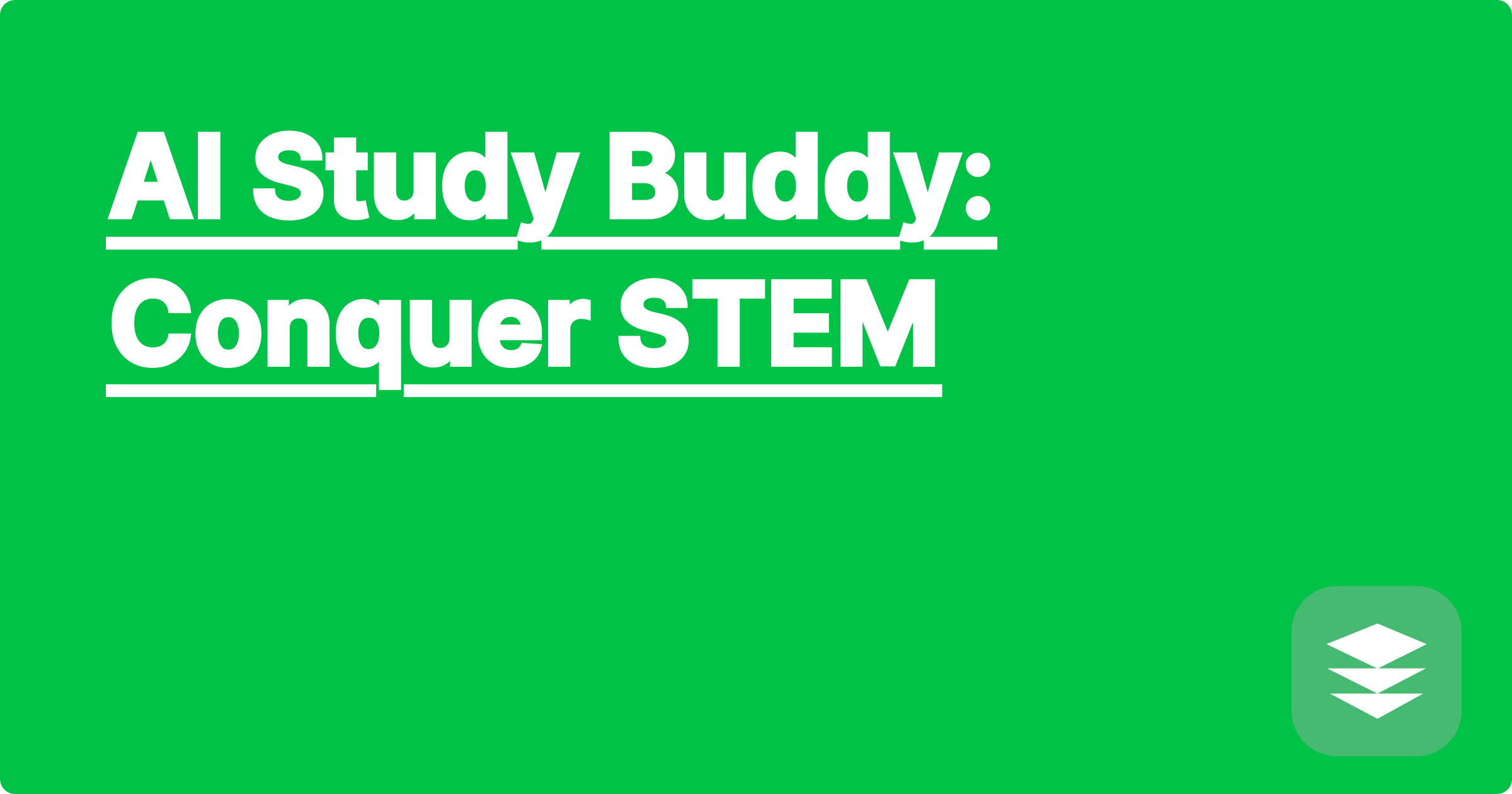
The demanding world of STEM education and research often leaves students feeling overwhelmed. Balancing complex coursework, rigorous research projects, and the pressure to maintain a high GPA can be a daunting task. However, the rise of artificial intelligence offers a transformative solution, providing students with personalized learning experiences and powerful tools to conquer these challenges. Imagine having a dedicated study buddy available 24/7, capable of tailoring learning materials to your specific needs, optimizing your study schedule, and even assisting with complex research tasks. This is the promise of AI-powered learning, and it’s revolutionizing how STEM students approach their academic journey. This blog post will explore how AI can empower you to achieve academic excellence, boost your research productivity, and navigate the complexities of STEM fields with greater confidence.
For STEM students and researchers, success hinges on efficient learning, effective time management, and the ability to process vast amounts of information. Traditional study methods often fall short in addressing these needs, leaving students struggling to keep pace. AI-powered learning platforms, like the innovative GPAI (Guided Personalized AI Instruction) system, offer a personalized and adaptive approach to learning, providing tailored resources and support based on individual strengths and weaknesses. This shift towards personalized learning is not just a trend; it’s a necessary evolution in STEM education, empowering students to unlock their full potential and thrive in their chosen fields.
STEM fields are inherently challenging, demanding a deep understanding of complex concepts, rigorous analytical skills, and the ability to apply theoretical knowledge to practical problems. Students often struggle with information overload, difficulty grasping abstract concepts, and the pressure to perform well in highly competitive environments. Furthermore, traditional learning methods often fail to cater to individual learning styles and paces, leading to frustration and a sense of being left behind. Research in STEM fields is equally demanding, requiring extensive literature reviews, data analysis, and the ability to synthesize information from diverse sources. These challenges can hinder progress and lead to burnout, highlighting the need for more effective and personalized learning and research tools.
AI-powered learning platforms like GPAI offer a transformative solution to these challenges. GPAI utilizes advanced algorithms to analyze a student's learning style, identify areas of weakness, and generate personalized learning plans. Imagine GPAI creating a customized study schedule based on your upcoming exams, prioritizing topics you struggle with and allocating more time to those areas. This personalized approach ensures that you focus your efforts where they are needed most, maximizing your learning efficiency. Furthermore, AI tools can provide instant feedback on assignments, identify knowledge gaps, and suggest relevant resources, fostering a deeper understanding of the subject matter.
Integrating GPAI into your workflow is seamless. First, create an account and input your academic information, including your major, current courses, and learning goals. Next, GPAI analyzes your input and generates a personalized learning plan, outlining specific topics, resources, and study schedules tailored to your needs. As you progress, GPAI tracks your performance, adapts to your learning pace, and provides continuous feedback, ensuring you stay on track. For research tasks, GPAI can assist with literature reviews, summarizing key findings from research papers, and even suggesting potential research directions. This comprehensive support system empowers you to take control of your learning and research, fostering a sense of confidence and enabling you to achieve your academic aspirations.
Consider a physics student struggling with concepts of electromagnetism. GPAI can identify this weakness and recommend interactive simulations and visualizations that clarify these concepts. For a chemistry student, GPAI can provide personalized practice problems on stoichiometry, offering step-by-step solutions and identifying common errors. In mathematics, GPAI can assist with complex problem-solving, providing hints and guiding students through the steps of a proof. In engineering, GPAI can help analyze complex datasets, identify trends, and generate visualizations, aiding in the design and optimization of engineering systems. These examples demonstrate the versatility of AI-powered learning platforms in addressing the diverse needs of STEM students across various disciplines.
To maximize the benefits of AI-powered learning, integrate it strategically into your study routine. Combine GPAI’s personalized learning plans with established time management techniques like the Pomodoro method, allocating focused study sessions followed by short breaks. Leverage AI-powered research tools to efficiently gather and synthesize information for your projects. Don’t hesitate to experiment with different AI tools and platforms to find what works best for you. Remember, AI is a tool to enhance your learning, not replace it. Active engagement with the material and consistent effort remain crucial for success. Also, prioritize your mental well-being. AI-powered mindfulness apps can help manage stress and maintain a healthy work-life balance.
Conclude by embracing the power of AI to transform your STEM journey. GPAI and similar platforms are not just tools; they are partners in your academic success. By integrating these powerful resources into your workflow, you can conquer the challenges of STEM, unlock your full potential, and achieve your academic and research goals with greater efficiency and confidence. Start exploring these AI tools today and embark on a path toward a more rewarding and successful STEM experience. Remember, the future of learning is here, and it's powered by AI.
AI Research Assistant: Streamline
AI Homework Help: STEM Solutions
AI Simulations: Run Experiments